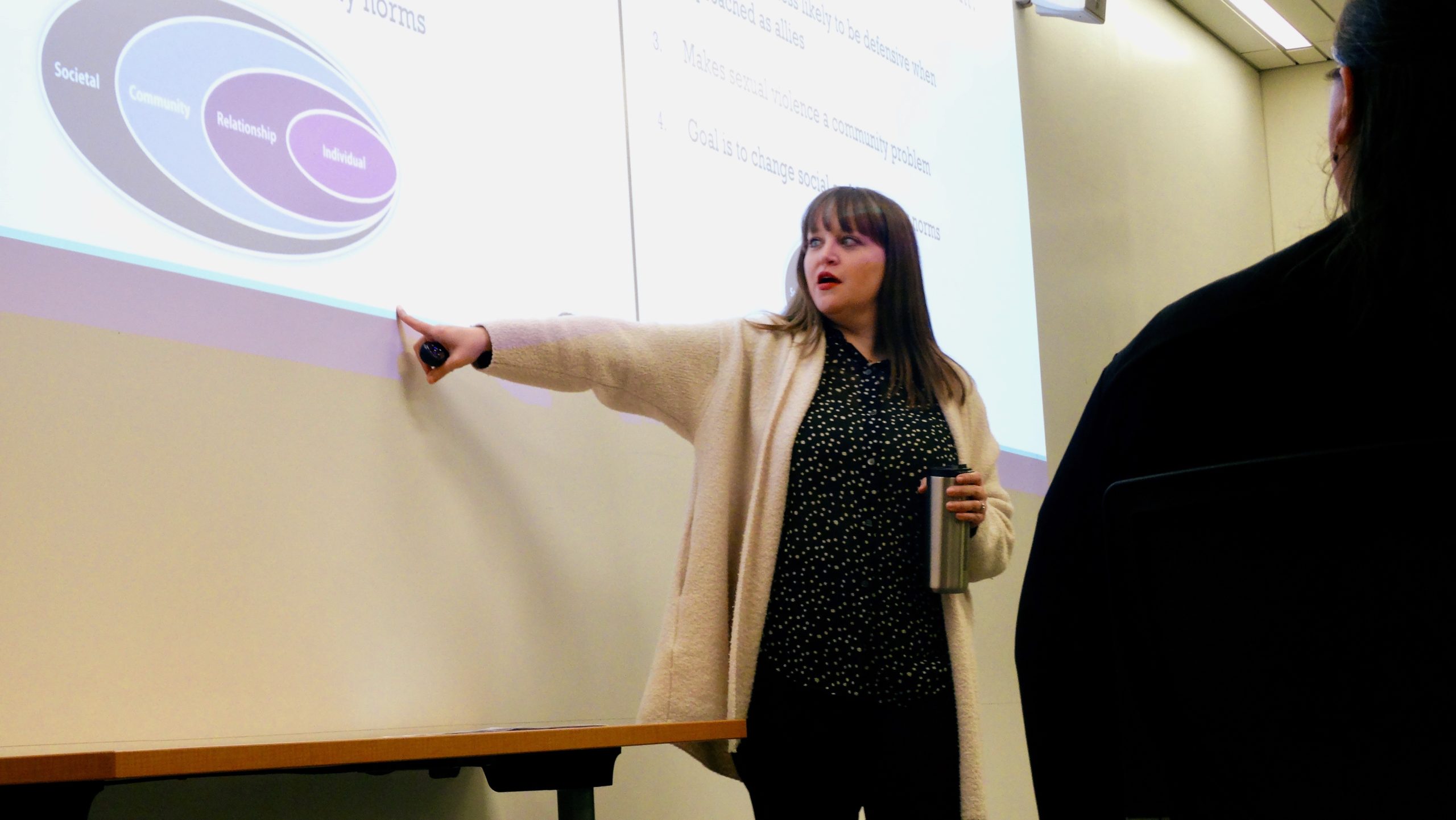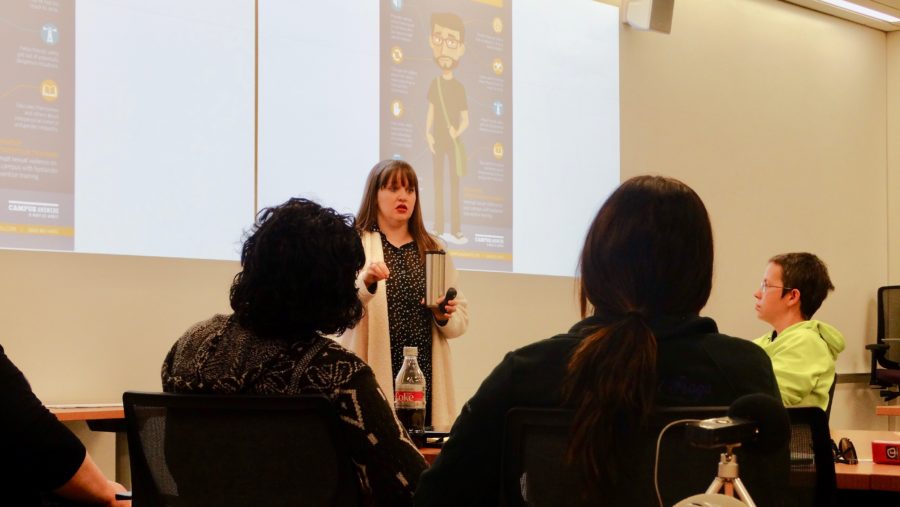Editor’s Note: This story was originally published in 2019 with data and information from research at that time. Current research shows, however, that the red zone is still a prevalent issue at many universities. For example, 13% of of all students experience rape or sexual assault through physical force, violence or incapacitation, and over 24% of students of female undergraduates experience rape or sexual assault through physical force, violence or incapacitation, according to RAINN’s latest research.
For Horned Frog football fans, the red zone is the space between the 20-yard line and the goal line. For women starting their first year of college, the red zone is their first semester.
A Greater Risk
Incoming first-year women are at higher risk of being sexually assaulted their first semester of college. This time period can even include the first two weeks before classes start.
The red zone is a dangerous time for female first-year students because of the increased vulnerability caused by combined risk factors, including how first-years are quicker to trust and form bonds.
Leah Carnahan, TCU’s assistant director of Title IX advocacy and education, said each university’s campus culture will impact the red zone’s exact time frame. At TCU, she said, the number of assaults tends to decline after Thanksgiving due to finals.
Incoming first-year students are more trusting because they’re trying to find their place in a new environment, Carnahan said. She added that first-year students are looking to belong and make connections with their peers without knowing their new friends’ character, values or normal behaviors.
“People are making really snap judgments in a condensed amount of time,” Carnahan said.
Sometimes these snap judgments are complicated by alcohol, Carnahan said. Intoxication, or even incapacitation, can make it easier to take advantage of an already vulnerable population, she said.
Chris Pratt, a detective at the TCU Police Department, said that every sexual assault case she’s seen involved drinking because younger students often don’t understand the effect alcohol can have on their bodies.
“And then they become involved in situations where they’re sexually assaulted or in situations where they don’t know how to control themselves to get them out of it,” Pratt said.
Eliminating alcohol would eradicate 90 percent of the crimes committed at TCU, including sexual assault, according to Adrian Andrews, the associate vice chancellor of public safety. He said alcohol lowers inhibitions, which creates a dangerous situation when combined with peer pressure and group mentality.
Although the impact of all these combined factors has been documented, students aren’t aware of the red zone’s impact, Carnahan said. This lack of awareness can make female first-years even more vulnerable.
Facing Vulnerability
It happened in her dorm room right before Thanksgiving break.
Grace, whose name has been changed to protect her privacy, was a first-year student. She was hanging out with a trusted male friend. She was more sober than him, but both of them had been drinking. Her roommate was asleep in the other bed when things spiraled.
First, he pressured her for a kiss; then, he shoved her hand down his pants, forcing her to touch him. She then fled her room and stayed with a friend. In the morning, she and her friends realized that her encounter was sexual assault.
Lacking the supportive group of friends she made two years later, Grace said she went to the Title IX office to explore her options by herself.
“I was freaking out,” Grace said. “Looking back, I wish had a friend that was close enough that could’ve gone with me.”
Two years after she was assaulted, Grace has built a community of friends and teachers and her own space at TCU. However, her experience has tainted TCU for her forever, she said.
Faith, another survivor of sexual assault whose name has been changed, said students aren’t aware of their vulnerability because they believe the stories they hear about sexual assault won’t happen to them.
“But then it happens to you,” she said.
Misconceptions about sexual assault are another reason why students believe they’re exempt from phenomenons like the red zone. Few sexual assaults are committed by a stranger, an issue against which women are often warned, Pratt said. Rather, she said, the majority of sexual assault survivors know their attacker.
This fact includes survivors on TCU’s campus, where 90 percent or more of sexual assaults involve someone the survivor knows, Carnahan said.
Just because someone lives in your hall doesn’t mean you can trust them, Carnahan said.
Knowing one’s attacker creates further difficulties for a survivor of sexual assault. According to the Rape, Abuse and Incest National Network, 10 percent of survivors of sexual assault didn’t report their assault because they didn’t want to get the perpetrator in trouble. Twenty-six percent said they didn’t report because they thought it was a personal issue.
Grace said she didn’t report her assault to Title IX or law enforcement because she didn’t want to ruin the respondent’s life based off of one night. Two years later, running into him on campus is still painful, she said. She looks forward to being free from that when she graduates.
Supporting and Empowering Through Education

While TCU police would like to prosecute sexual assault cases in order to prevent more victims, supporting survivors and their right to make their own decisions comes first, Andrews said.
“If this young person is taken care of and they’re good with that and we don’t prosecute the person, maybe we’ll get them the next time,” he said.
Carnahan also emphasized supporting survivors by empowering their human worth by educating students about the importance of consent. It’s important for students to confirm with their sexual partner that their actions are okay, no matter how awkward that might be, she said.
Pratt also said verbal consent is important. Clear communication and saying no can prevent a sexual assault or make it easier to prove something non-consensual happened.
“Put up that wall,” she said. “If the victim doesn’t say ‘no, I do not want this,’ how does the actor know they do not want it?”
Educating students about consent and the red zone can be complicated because certain aspects can be interpreted as victim-blaming, Carnahan said, but that’s not the intent of the education about safety tips for preventing sexual assault.
“It’s never their fault,” she said. “It’s trying to limit those vulnerabilities and build those resiliencies and those protective factors.”
For the next round of incoming first-year students, Carnahan said she will encourage them to make healthier choices about drinking and going out during their first semester. But most of all, she said she plans on being honest with them about their increased vulnerability during the first semester.
Awareness of the red zone can create a culture where students look out for each other. Carnahan said she knows of one student who intervened on behalf of his peer because of the Not Anymore videos first-year students are required to watch.
“When he was thanked for it, he said ‘My parents told me to do the right thing,’” Carnahan said. “’But also, if I hadn’t watched those videos we were required to watch, I might not have thought about it.’”







